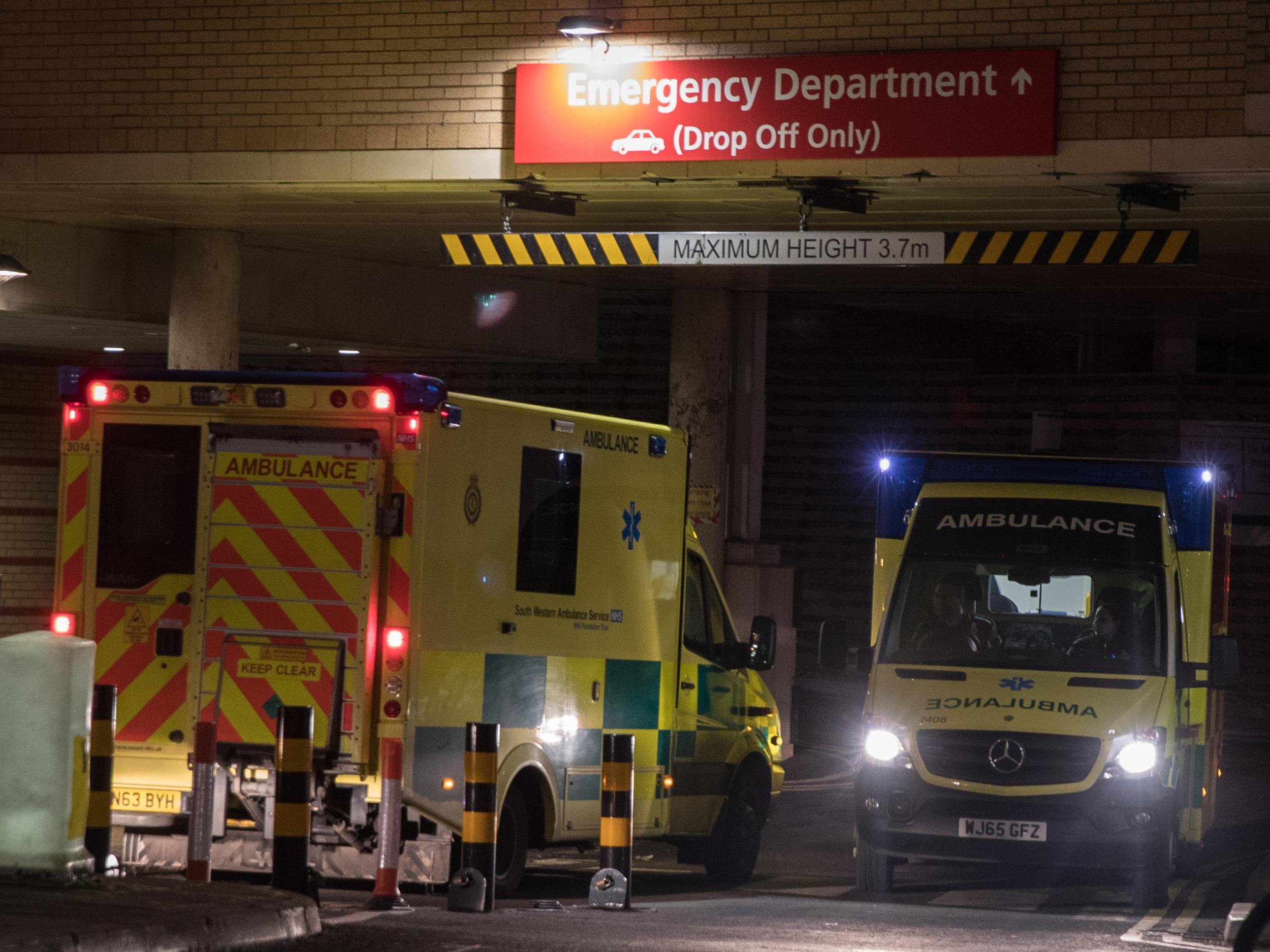Nurses and GPs to be 'first responders' to 999 calls from stricken pensioners amid NHS winter crisis
Exclusive: Doctors’ groups warn that other parts of the NHS are also at maximum capacity and say suggestion GPs could offer morphine is ‘unsafe’ without proper facilities

Nurses and GPs are to be sent to answer 999 calls ahead of ambulance crews in the latest evidence of the winter crisis engulfing the NHS, The Independent can reveal.
Health chiefs in the North East have told nurses and GPs they may have to act as “first responders” for patients who have fallen in their own homes or residential homes and may even need to administer painkillers, including intravenous morphine, if ambulances are delayed.
Bosses said the scheme was necessary because of a massive increase in demand and was intended to avert more “tragic” cases involving older patients with serious fractures and no pain relief. But senior doctors have said the move could affect patient safety.
Not all nurses are routinely trained to the levels that paramedics are, but even where nurses are trained experts have warned that morphine should only be administered where there are facilities for ‘continuous observation and respiratory support should it be required’. Because this is unlikely to be available at peoples’ homes, some say safer alternatives should be considered.
An email from NHS Clinical Commissioning Groups (CCGs) in County Durham said the scheme was being introduced in response to “huge pressures” on the North East Ambulance Service (NEAS) this winter.
The email, sent out to local GP practices this week and seen by The Independent, said the scheme would only apply to patients over 65, and only when an ambulance will be delayed by more than an hour.
“We have had some tragic cases where people have been left lying on the floor at home with a serious fracture and no pain relief,” it says.
In the email NHS Durham Dales, Easington and Sedgefield CCG and NHS North Durham CCG explain ambulances are stretched because of “inappropriate 999 calls” and because they’re forced to queue outside A&E because of a lack of capacity to move patients into hospital.
Labour’s Shadow Health Secretary, Jonathan Ashworth, said the NHS had been forced into “desperate measures” to protect patients as a direct result of the Government’s austerity policies.
“Ministers keep boasting the NHS has enough funding and is well prepared this winter, yet we’re now seeing the dismal consequences of seven hard years of austerity underfunding and it means patients suffering as has been reported across Durham.”
Pressures across the NHS have been steadily increasing in the run-up to winter and The Independent revealed that one in five trusts had run out of beds in the first two weeks of reporting.
Figures released on Friday give a first month of performance statistics, up to Christmas Eve, and reveal almost 60,000 patients have waited more than 30 minutes in an ambulance to get into an A&E, with one in five of these waiting more than an hour.
In County Durham, NEAS described the increase as “mind-boggling”, saying it answered 24,500 calls to 999 and the non-emergency 111 between 23 December and Boxing Day this year – compared to 16,400 over the same period in 2016.
To tackle this, the CCGs said senior community nurses and nurses specialised in supporting elderly and vulnerable patients will now “act as first responders for patients who have fallen in their own homes or residential homes.”
It adds that GPs will also be asked to “provide analgesia on rare occasions” and includes advice from an A&E consultant on what pain relief can be safely administered to patients with a fracture.
The list includes oral paracetamol and codeine, as well as intravenous morphine – with the note “assuming renal function is OK” – but GP leaders said this should only happen with proper monitoring.
Dire state of care homes for the elderly is only going to get worse, says top inspector
Show all 3Dr Andrew Green, who leads on GP clinical issues for the British Medical Association, said that administering morphine in frail older people “should only be done with full facilities for continuous observation and respiratory support should it be required.
“This is unlikely to be available so safer alternatives should be considered.”
He said that providing nurses to respond where ambulances were delayed “was to be welcomed”, but they should be properly trained and able to administer any drugs that might be necessary.
“This is a sad reflection of the pressures that all parts of the health service are under at the moment, due to the failure of the government to provide the resources needed to meet increased demand,” Dr Green added.
Dr Neil O’Brien, clinical chief officer at NHS North Durham CCG, and one of the signatories on the email, said the move had been developed with local NHS bodies for patients needing “urgent, but not emergency, help”.
“Winter is a challenging time for the NHS, and our emergency services across the region have been experiencing significant pressures over the festive period.
“We are asking everyone to help the NHS over winter. Please only use the emergency services when it is obvious that you or another person has a life-threatening illness or injury that needs immediate assistance.”
NHS England and the Department of Health had no additional comment.
Subscribe to Independent Premium to bookmark this article
Want to bookmark your favourite articles and stories to read or reference later? Start your Independent Premium subscription today.

Join our commenting forum
Join thought-provoking conversations, follow other Independent readers and see their replies